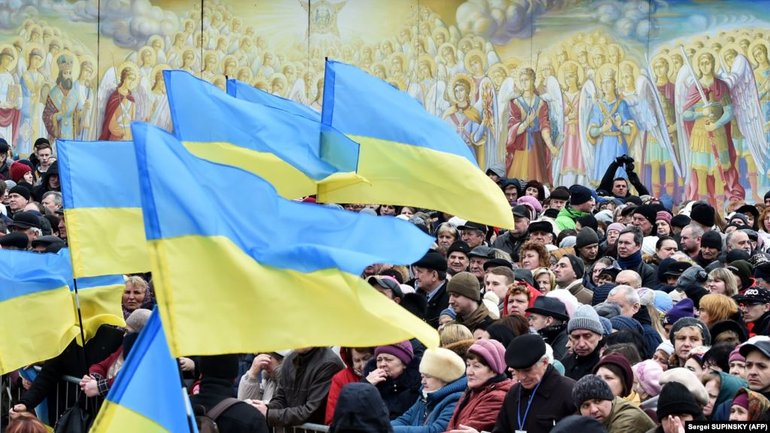The autocephaly of the OCU irritates Russia, - Forbes


Forbes magazine has published an article about the religious confrontation between Russia and Ukraine under the title "Fasting in Russia and Ukraine: piety and political confrontation". As Orthodox Christians started Lent on March 2, faith still remains the front line in the long-running conflict between Russia and Ukraine, the author of the article, journalist and expert on Russia and other post-Soviet countries, James Rogers, believes. This is reported by Radio Liberty.
According to him, this is a strange development for both States, as the former Soviet republics were officially atheistic for most of the previous century. But although less than three decades have passed since the collapse of the Soviet Union, this situation seems to be a thing of the past.
The author points out that Russia is becoming more and more religious - although with one important reservation: Russians can happily call themselves Orthodox, though relatively few of them, according to research, no more than one tenth, regularly go to Church. The Church calendar is increasingly affecting everyday life: restaurants and cafes in Russia offer special meals for those who adhere to fasting (in fact, a vegan diet, the author notes). A representative of the President of Russia Dmitry Peskov, speaking about the date of the national vote on changes to the Constitution of this country on April 22, said that this is due to the end of the post.
But this period of Russia rediscovering its religious heritage has also become a period in which Russia has become more aggressive on the world stage. And in the case of a conflict with Ukraine, the Orthodox faith has become another area of confrontation, the article says.
The author recalls that in January 2019, Patriarch Bartholomew, the spiritual head of the Orthodox world, granted the Church in Ukraine independence from the Moscow Patriarchate. And given the state of Russia's relations with Ukraine and Russia's desire to be considered a state that supports the traditional idea of Christian culture, this has become a matter not only of piety but also of politics: Ukrainian President Petro Poroshenko praised this step as"another act of declaring the country's independence".
Russia was not as much satisfied. Its President, Vladimir Putin, even said at the time that it could lead to bloodshed. He also sharply criticized US Secretary of state Mike Pompeo for his decision to discuss this issue during a visit to Kyiv, calling it "absolutely unacceptable".
According to the author, this did not bother Pompeo too much. As he arrived in Ukraine again in January 2020, he met with Metropolitan Epifaniy, the head of the new Church, and this gesture was clearly intended to show support for the Orthodox Church of Ukraine.
"At a time when things in Ukraine have become the subject of more speculation in US politics than ever before, and accusations continue to be made that Russia wants to help Trump in re-election, this spiritual battle has a significance far beyond the former Soviet Union," the article says.









